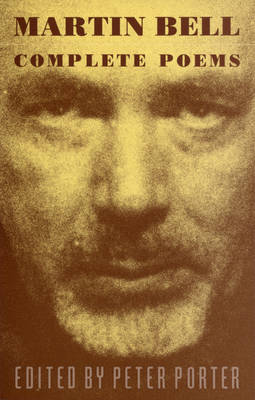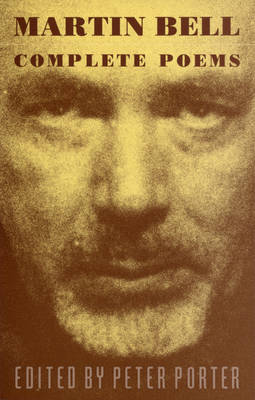
Bedankt voor het vertrouwen het afgelopen jaar! Om jou te bedanken bieden we GRATIS verzending (in België) aan op alles gedurende de hele maand januari.
- Afhalen na 1 uur in een winkel met voorraad
- In januari gratis thuislevering in België
- Ruim aanbod met 7 miljoen producten
Bedankt voor het vertrouwen het afgelopen jaar! Om jou te bedanken bieden we GRATIS verzending (in België) aan op alles gedurende de hele maand januari.
- Afhalen na 1 uur in een winkel met voorraad
- In januari gratis thuislevering in België
- Ruim aanbod met 7 miljoen producten
Zoeken
Omschrijving
Born in Hampshire in 1918, Martin Bell was the leading member of the 'lost generation' of English poets whose careers were interrupted by the War. He was a prominent member of The Group during the fifties, and a major influence on younger poets like Peter Redgrove and Peter Porter. His poetry reached a wide audience during the sixties through Penguin Modern Poets, and in 1967 he published his Collected Poems 1937-1966, his first and last book. Bell was also a champion and brilliant translator of French Surrealist poets. He died in poverty in Leeds in 1978. Like other 'provincial' working-class contemporaries, Bell wrote fantastical, highly erudite, biting, belligerent poetry. And yet - as Philip Hobsbaum said - he also wrote 'some of the most delicate love poems of our time' as well as 'one of the major war poems in the language'. A. Alvarez called him 'an emotional tightrope walker... He writes a rather bitter, tensely colloquial verse based, it seems, on a radical dislike for both himself and pretty much everything else.'
Specificaties
Betrokkenen
- Auteur(s):
- Uitgeverij:
Inhoud
- Aantal bladzijden:
- 242
- Taal:
- Engels
Eigenschappen
- Productcode (EAN):
- 9781852240431
- Verschijningsdatum:
- 25/08/1988
- Uitvoering:
- Paperback
- Formaat:
- Trade paperback (VS)
- Afmetingen:
- 137 mm x 213 mm
- Gewicht:
- 376 g

Alleen bij Standaard Boekhandel
+ 55 punten op je klantenkaart van Standaard Boekhandel
Beoordelingen
We publiceren alleen reviews die voldoen aan de voorwaarden voor reviews. Bekijk onze voorwaarden voor reviews.









